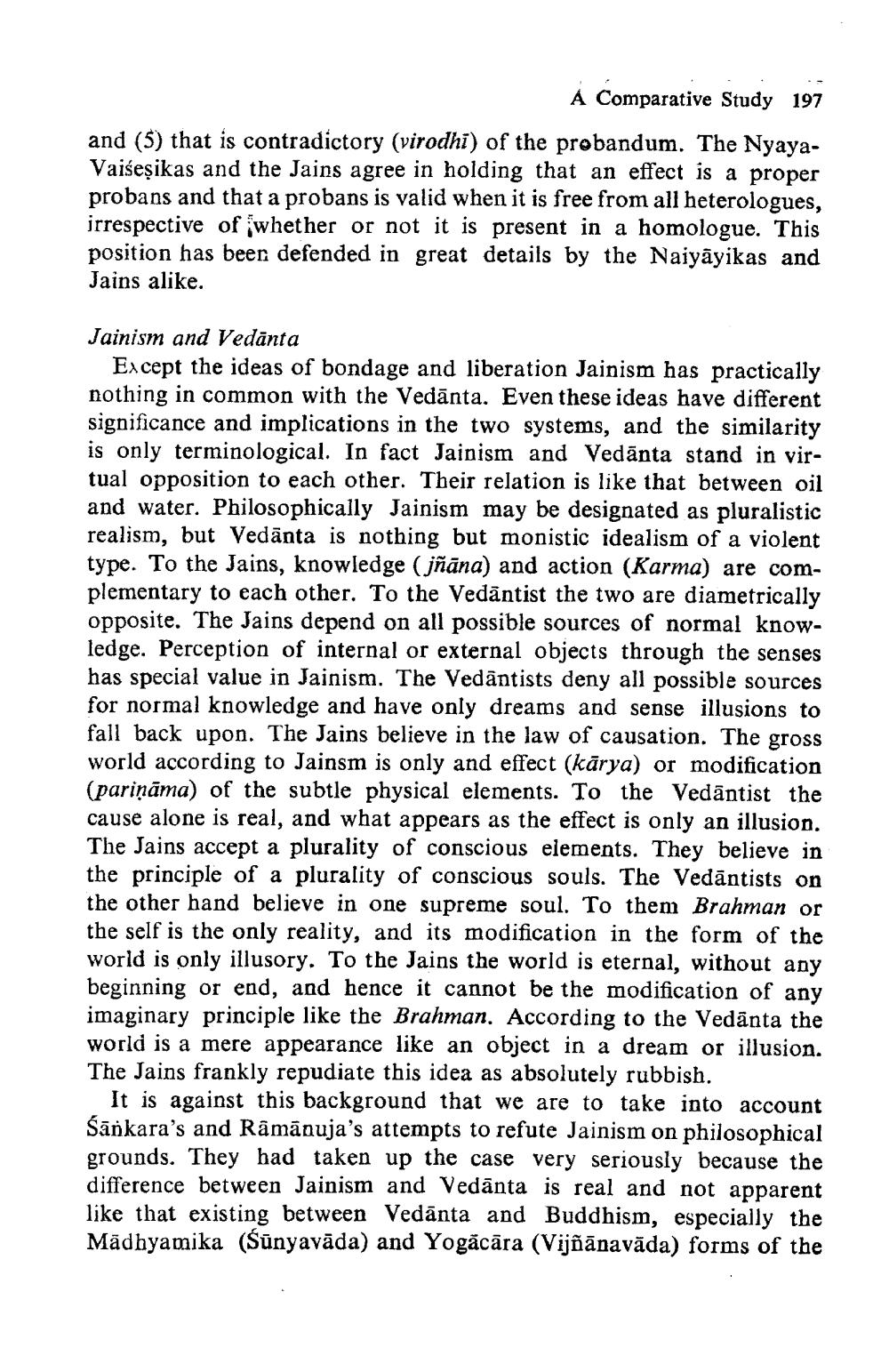________________
Á Comparative Study 197 and (5) that is contradictory (virodhi) of the probandum. The NyayaVaiseșikas and the Jains agree in holding that an effect is a proper probans and that a probans is valid when it is free from all heterologues, irrespective of whether or not it is present in a homologue. This position has been defended in great details by the Naiyāyikas and Jains alike.
Jainism and Vedānta
Except the ideas of bondage and liberation Jainism has practically nothing in common with the Vedānta. Even these ideas have different significance and implications in the two systems, and the similarity is only terminological. In fact Jainism and Vedānta stand in virtual opposition to each other. Their relation is like that between oil and water. Philosophically Jainism may be designated as pluralistic realism, but Vedānta is nothing but monistic idealism of a violent type. To the Jains, knowledge (jñāna) and action (Karma) are complementary to each other. To the Vedāntist the two are diametrically opposite. The Jains depend on all possible sources of normal knowledge. Perception of internal or external objects through the senses has special value in Jainism. The Vedāntists deny all possible sources for normal knowledge and have only dreams and sense illusions to fall back upon. The Jains believe in the law of causation. The gross world according to Jainsm is only and effect (kārya) or modification (pariņāma) of the subtle physical elements. To the Vedāntist the cause alone is real, and what appears as the effect is only an illusion. The Jains accept a plurality of conscious elements. They believe in the principle of a plurality of conscious souls. The Vedāntists on the other hand believe in one supreme soul. To them Brahman or the self is the only reality, and its modification in the form of the world is only illusory. To the Jains the world is eternal, without any beginning or end, and hence it cannot be the modification of any imaginary principle like the Brahman. According to the Vedānta the world is a mere appearance like an object in a dream or illusion. The Jains frankly repudiate this idea as absolutely rubbish.
It is against this background that we are to take into account Sānkara's and Râmānuja's attempts to refute Jainism on philosophical grounds. They had taken up the case very seriously because the difference between Jainism and Vedānta is real and not apparent like that existing between Vedānta and Buddhism, especially the Mādhyamika (Śūnyavāda) and Yogācāra (Vijñānavāda) forms of the




